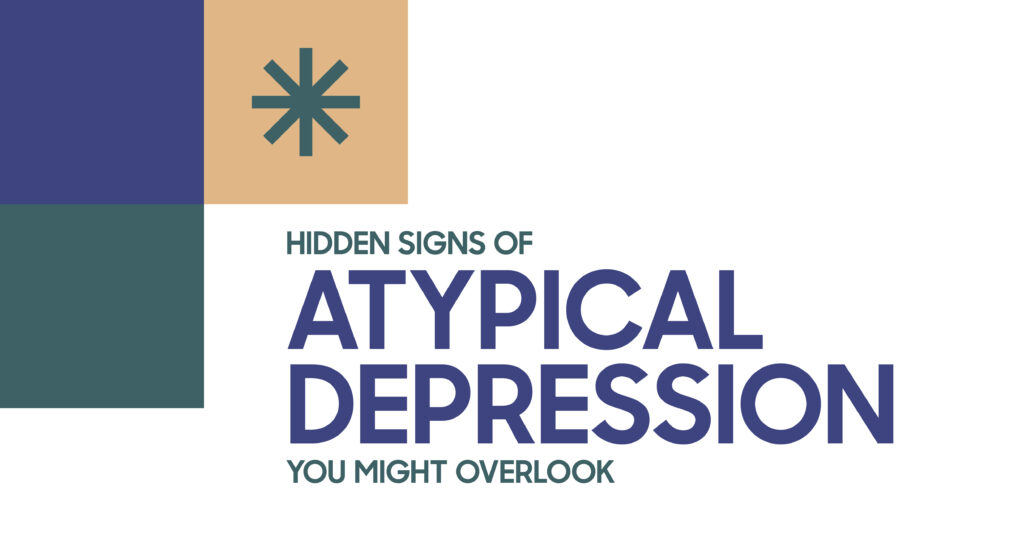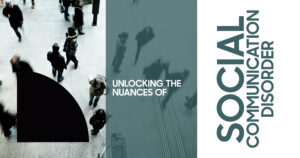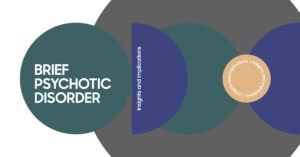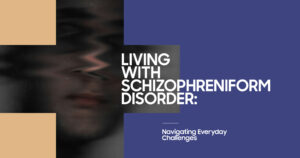Depression is often portrayed as a constant state of sadness, low energy, and disinterest in life. But atypical depression, a subtype of major depressive disorder, can look quite different. It may hide beneath periods of normal mood, subtle behavioral changes, and physical symptoms that are easy to attribute to stress, lifestyle, or aging.
Many people with atypical depression go undiagnosed because they don’t fit the “typical” depression picture. Instead, they might experience mood reactivity (feeling better when something positive happens), along with a unique combination of symptoms like weight gain, leaden paralysis, hypersensitivity to rejection, and disrupted sleep. Recognizing these hidden signs is crucial for early intervention and effective treatment.
Uncovering the Reality of Atypical Depression
Unlike more familiar forms of depression, atypical depression allows for mood improvement in response to good news or events, but the relief is often temporary. Between these fleeting moments, symptoms persist and disrupt daily life.
Atypical depression is not rare – it’s estimated to account for up to 36% of major depressive disorder cases, yet it remains widely misunderstood. This lack of awareness can delay treatment, leading to prolonged suffering and reduced quality of life.
Recognizing the Core Symptoms
Before diving deeper into the lesser-known effects, it’s important to understand the hallmark symptoms of atypical depression. These go beyond sadness and may include:
- Mood reactivity (brief mood lifts in response to positive events).
- Significant weight gain or increased appetite.
- Heavy, leaden feelings in the limbs.
- Hypersensitivity to criticism or rejection.
- Oversleeping or excessive fatigue.
Fatigue and Leaden Paralysis: More Than Just Tiredness
Fatigue in atypical depression isn’t simply feeling tired – it can feel like moving through molasses. The term leaden paralysis describes the heavy, dragging sensation in the arms and legs that makes even simple tasks exhausting.
For many, this physical heaviness:
- Limits mobility and exercise.
- Causes the avoidance of daily chores.
- Reduces participation in social or work activities.

The Link Between Weight Gain and Emotional Health
One of the distinctive features of atypical depression is increased appetite and weight gain, often linked to emotional eating. While typical depression is more likely to reduce appetite, atypical depression can drive strong cravings for high-calorie comfort foods. These foods may temporarily soothe emotional pain, but they often lead to health issues and feelings of guilt. Research suggests that serotonin imbalances – a brain chemical involved in mood regulation – also influence appetite, which helps explain why these patterns often persist without treatment.
This is how weight gain connects to emotional health in atypical depression:
| Pattern | Description | Emotional Impact |
| Emotional Eating During Stress or Sadness | Using food as a coping mechanism to temporarily improve mood during emotional lows. | Short-term comfort followed by guilt, reinforcing depressive symptoms. |
| Weight Fluctuations That Impact Self-Esteem | Gaining or losing weight rapidly due to inconsistent eating habits and cravings. | Lowered confidence and body dissatisfaction, fueling negative self-image. |
| Cycle of Guilt and Overeating | Feeling guilty about weight gain, which leads to more emotional eating for relief. | Perpetuates a loop of self-criticism and unhealthy habits. |
How Social Withdrawal Impacts Daily Relationships
Social withdrawal in atypical depression often starts subtly – missing a gathering here, declining an invitation there – but over time, it can erode personal connections. People may withdraw to avoid rejection, criticism, or the exhaustion of socializing, especially when fatigue and low motivation are present.
This avoidance can:
- Strain friendships and family bonds, as loved ones may feel neglected or pushed away.
- Reduce access to emotional support networks, leaving the person feeling isolated when help is needed most.
- Deepen feelings of loneliness and hopelessness, which can intensify other depressive symptoms.
Sleep Disturbance in Atypical Depression
In atypical depression, sleep disturbance typically appears as hypersomnia – sleeping excessively yet still feeling unrefreshed. Unlike insomnia, which causes trouble falling or staying asleep, hypersomnia is about too much sleep without restorative rest.
Excessive sleep can:
- Disrupt work and personal schedules, making it hard to maintain daily responsibilities.
- Increase feelings of grogginess and irritability, leading to reduced productivity and patience.
- Contribute to a cycle of inactivity and low mood, as oversleeping limits exposure to natural light, social interaction, and physical activity – all of which help regulate mood.
Hypersensitivity to Rejection and Emotional Triggers
Hypersensitivity to rejection is one of the core emotional challenges of atypical depression. Even minor criticism, perceived slights, or neutral comments can trigger disproportionate emotional reactions, ranging from sadness to anger.
This heightened sensitivity often leads to:
- Avoidance of new relationships or opportunities, out of fear of being judged or dismissed.
- Overanalyzing conversations and interactions, searching for hidden negative meanings.
- Emotional overreactions can cause misunderstandings and strain relationships.
Appetite Changes and Their Emotional Roots
While weight gain is common, appetite changes in atypical depression can be more complex. Some people experience cravings tied to mood states, particularly for carbohydrates or sugary foods that provide temporary serotonin boosts.
These eating patterns can:
- Offer short-term relief but worsen long-term health.
- Create a cycle of overeating followed by guilt.
- Reinforce the connection between food and emotional regulation.
Take the First Step Towards Atypical Depression at Treat Mental Health
If you recognize these signs – whether in yourself or someone you care about – know that help is available. Atypical depression is highly treatable with the right combination of therapy, medication, and lifestyle changes.
At Treat Mental Health, our team specializes in identifying and treating mood disorders, including atypical depression. We work with you to create a personalized plan that addresses emotional and physical symptoms.
Contact Treat Mental Health today to begin your path toward better mental health and emotional resilience.

FAQs
- How does fatigue impact daily life for individuals with atypical depression?
Fatigue can make even simple tasks feel overwhelming, often accompanied by a heavy, leaden feeling in the limbs. This can limit productivity and participation in daily activities.
- What is the connection between atypical depression and weight gain?
Increased appetite and cravings for comfort foods are common, leading to weight gain. Emotional eating often becomes a way to cope with stress or sadness.
- Why do people with atypical depression often experience social withdrawal?
Social withdrawal may stem from hypersensitivity to criticism or from the physical exhaustion caused by the disorder. Over time, this isolation can worsen feelings of depression.
- How do sleep disturbances affect those suffering from atypical depression?
Many experience hypersomnia, or excessive sleep, which disrupts daily routines and contributes to persistent fatigue. This can further reduce motivation and energy levels.
- What are the common signs of leaden paralysis in someone with atypical depression?
Leaden paralysis involves a heavy, dragging sensation in the arms and legs, making movement and physical activity unusually difficult. It’s a hallmark symptom that goes beyond normal tiredness.








